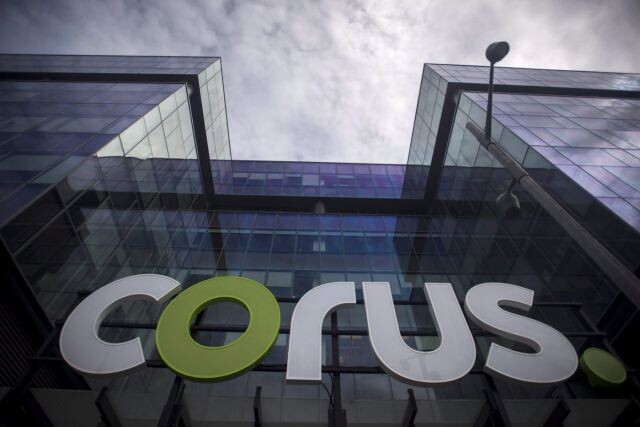Corus bondholders, facing steep losses on loans, fight for control of media company

Unsecured lenders to Corus Entertainment Inc. CJR-B-T are preparing to fight for control of the media company rather than see rival Quebecor Inc. QBR-B-T acquire it at a steep discount to the face value of their loans.
Corus, owner of the Global Television Network, is working on a restructuring of its $1.05-billion in debt that could include the sale of the company, with noteholders receiving as little as a dime for every dollar in debt. Toronto-based Corus also owns 32 specialty TV channels and 38 radio stations.
In recent weeks, Canadian institutional investors who hold a significant portion of the company’s $750-million in unsecured notes formed a committee to represent their interests. The group is led by Canso Investment Counsel Ltd., one of the country’s largest credit-focused fund managers, according to two sources involved in the process.
The Globe and Mail agreed not to name the sources because they are not permitted to speak for the companies. Corus, Canso and Quebecor declined to comment.
The noteholders face the prospect of taking significant losses on their loans if Corus is sold to a suitor such as Quebecor, which analysts say is offering to buy the company for less than $400-million, including its debt.
The noteholders are looking for alternatives to a quick sale of Corus, including swapping their debt for equity in the media company. This sort of restructuring would give lenders control of Corus and the ability to sell their stock over time, according to the sources.
Toronto-based Canso, which manages more than $50-billion for its clients, has led several debt-for-equity restructurings, including a successful one at Postmedia Network Canada Corp. PNC-B-T that saw the fund manager paid back everything it was owed.
In January, Quebecor reached out to Corus’s board of directors with an offer to open takeover talks. Since then, the dominant player in Quebec media has held a number of meetings with Corus executives and the company’s creditors. However, Corus has yet to engage in formal negotiations and due diligence with Quebecor, instead asking for time to work on its debts, according to the sources.
In June, U.S. broadcaster Warner Bros. Discovery Inc. announced plans to move several of its brands, including HGTV and Food Network, from Corus to Rogers Communications Inc. RCI-B-T The shift is scheduled to take place in January and analysts said it will significantly reduce Corus’s revenues. The following month, Corus warned its debt commitments put the company’s future as a going concern at risk and disclosed it was in talks to rework its loans.
Part of Quebecor’s pitch to Corus is the Montreal-based company has strong relationships with broadcasters around the world and can bring top programs to Global and the specialty TV channels, the sources said.
Last month, Corus announced an agreement with its banks, led by Royal Bank of Canada and Toronto-Dominion Bank, that eased covenants on its loans and extended a credit facility to March, 2025.
Corus has $500-million of notes due in 2028 and another $250-million maturing in 2030. The securities are currently trading for between 43 cents and 46 cents for each dollar of debt. On Aug. 31, the end of Corus’s fiscal year, the company also owed $310-million to its banks in a loan secured against its assets.
If Quebecor acquired Corus for $400-million or less and bank loans were repaid in full, noteholders would receive between 10 and 15 cents on the dollar.
Based on past restructurings, any sale or debt-for-equity swap at Corus would likely see banks roll over a portion of their loans and noteholders take a cut on the face value of their debt, in exchange for equity. Financial restructurings such as the one playing out at Corus are exercises in negotiating skills for all involved.
Any restructuring or sale of Corus is expected to leave very little for the company’s existing shareholders. On Tuesday, Corus stock closed at 12 cents on the Toronto Stock Exchange, which valued the company’s equity at $21.6-million.
Corus’s TV channels and radio stations are profitable, earning $295-million and $9.4-million respectively last year. The company’s debt issues date back to 2016, when Corus borrowed to acquire former Global TV owner Shaw Media Inc. for $2.65-billion.
Corus’s Canadian noteholders hired investment bank Canaccord Genuity Group Inc. and law firm Bennett Jones LLP to advise them on the transaction. The creditor group excluded U.S. noteholders because federal regulations block foreign investors from controlling Canadian media companies. Jefferies Financial Group Inc. is advising Corus’s board.